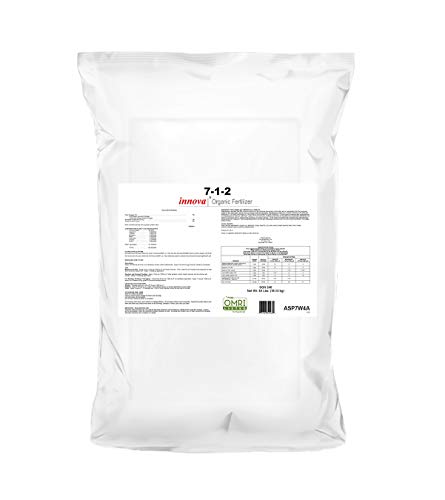Milorganite is one of the best organic fertilizers chosen by a lot of people who are looking to grow a healthy lawn.
But what if it runs out of stock or you just don’t see great results with it? What if you need something more affordable? Are there any Milorganite alternatives that can work well as substitutes?
In this article, we’re discussing what makes a good Milorganite alternative. We’re also reviewing our top 4 recommendations for organic substitutes.
4 Best Milorganite Alternatives
1. Superior Nitrogen & Potash 15-0-15 NPK- Lawn Food Quality Liquid Fertilizer
The Superior Nitrogen & Potash Lawn Food Liquid Fertilizer is a bioactive, phosphate-free nutritional fertilizer. It’ll provide your soil with all the nutrients necessary for healthy plant growth without overfeeding and causing them to get burned.
This is mainly because of the slow-release feature that allows the soil to break down the required nutrients when needed. Additionally, the Superior Nitrogen & Potash Lawn Food Liquid Fertilizer delivers a range of key ingredients that work to improve the overall quality, health, and strength of the soil.
This Milorganite alternative also is rich in nitrogen, potassium, and humic acid. Not only does this combination promote growth, but it also results in greener grass thanks to the humic acid that helps the soil effectively and evenly transfer the nutrients to plant cells.
Developed to offer users maximum convenience, you can easily and quickly apply this organic liquid fertilizer across all grass types including Bermuda grass, St. Augustine grass, Palmetto, Zoysia, Bluegrass, Fescue, and more.
2. Safer Brand 9334 No Phosphate Lawn Restore Fertilizer
The Safer Brand 9334 No Phosphate Lawn Restore Fertilizer is a slow-release organic fertilizer. This means it’ll keep feeding your lawn for a long time, just like Milorganite.
The Lawn Restore Fertilizer is made from plant materials. It’s free of biosolids from animals and animal waste.
This alternative fertilizer works pretty similar to Milorganite as it feeds the soil with bacteria and fungi to produce the needed nutrients for healthy growth.
Also, you can use it on turfgrasses in both warm and cool seasons. This includes Bermuda grass, St. Augustine, Rye, Kentucky Bluegrass, and a lot more.
The Safer Brand Lawn Restore Fertilizer won’t burn your lawn even if you apply it heavily. Additionally, it also helps reduce the spread of weeds.
Although this organic fertilizer offers your grass plenty of nitrogen, unlike Milorganite, it doesn’t contain iron. As such, you’ll have to pair it with an iron supplement.
3. The Andersons 7-1-2 Innova Premium Organic Fertilizer
The Andersons Innova Premium Organic Fertilizer can give Milorganite a run for its money thanks to its high-quality and great set of features.
It has an NPK ratio of 7-1-2, which is every lawn owner’s dream. It’s made completely from plant materials, without including any waste products such as feces or animal parts.
This premium organic fertilizer won’t burn your grass even with heavy applications. It provides high amounts of amino acids but doesn’t contain any iron, so a supplement is certainly due.
Since this is a soy-based organic fertilizer, you don’t need to worry about its safety when it comes to pets and children running on your lawn.
4. Scotts Natural Lawn Food
No products found.
Scotts Natural Lawn Food is made from chicken feather meal, meat meal, bone meal, blood meal, and sulfate of potash. It’s safe to use around pets and children who can be allowed to walk on the lawn immediately after application.
The Scotts Natural Lawn Food has a high nitrogen ratio with an 11-2-2 NPK formulation. It can help you build a thick, green lawn in a completely organic way, just like Milorganite.
The only downside to this reliable Milorganite alternative is that it’s not available for sale in CT, MD, ME, MN, NJ, NY, WA, and WI. Additionally, there’s a possibility that it may contain some pesticides, so be sure to carefully check the ingredients list.
It’s also important to keep in mind that it may be enticing to dogs seeing that it contains things like bone meal and chicken feather meal.
That being said, Scotts Natural Lawn Food is suitable for application on any grass type during any season.
What is Milorganite?
Milorganite is one of the most popular organic fertilizers on the market. It’s, by far, the go-to choice for a lot of people looking to achieve a healthy lawn.
Milorganite is produced by the Milwaukee Metropolitan Sewerage District. It’s a slow-release nitrogen-rich fertilizer that contains iron and various beneficial nutrients for your soil.
The Nitrogen-Phosphorus-Potassium (N-P-K) ratio of Milorganite is 6-4-0. For a full bag, the rate application, as mentioned on the 32-pound bag, covers 2,500 square feet and delivers 0.77 pounds of nitrogen for every 1,000 square feet.
How to Choose a Milogranite Alternative
When selecting an alternative fertilizer for Milorganite, you should check that it has the following basic features:
- The alternative fertilizer should be slow-releasing — like Milorganite, this lets you apply your nitrogen fertilizer less frequently as it consistently provides the soil with nutrients for up to 10 weeks.
- The alternative fertilizer should have a high nitrogen and iron content. Iron helps you get that beautiful deep green color in your grass for a more vibrant lawn.
- The alternative fertilizer should be non-burning. This means it doesn’t overfeed your plants, which could cause them to get burned.
As such, organic fertilizers are safer to use during summer than synthetic fertilizers. The slow-release of nitrogen also supports the non-burning property of a fertilizer.
- The alternative fertilizer should be free from harsh chemicals and loaded with organic matter to help nourish the soil, consequently feeding and activating beneficial soil microbes.
Can You Use Milorganite with Other Fertilizers?
Yes, you can use Milorganite with other fertilizers. You can safely pair Milorganite with other N-P-K fertilizers and supplements, but this depends on the amount of Nitrogen you’re looking to put down per application and per year.
Wrap Up
There you have it. Our top 4 recommendations for a Milorganite alternative as well as tips on how to choose a reliable substitute for the popular fertilizer.




